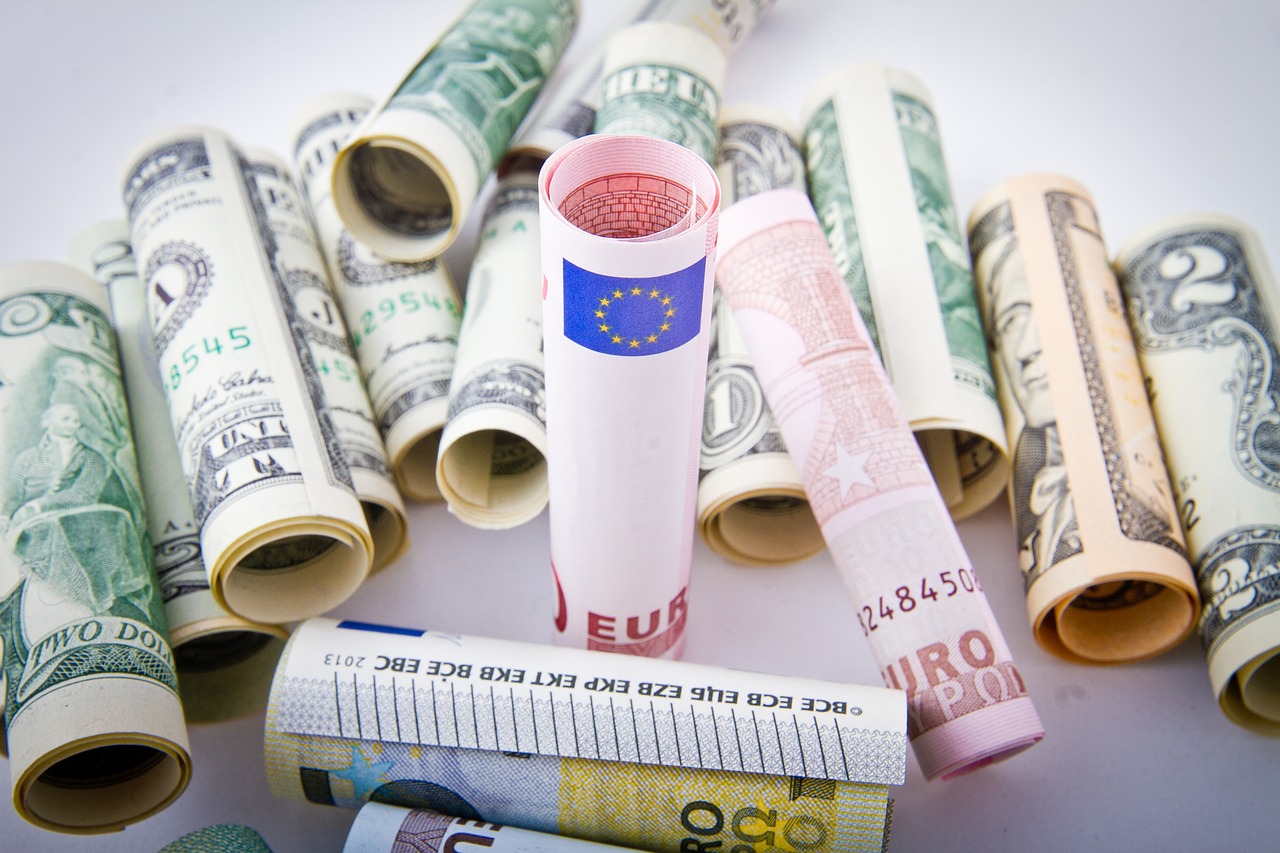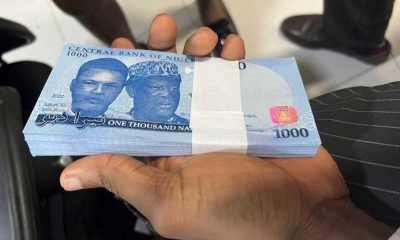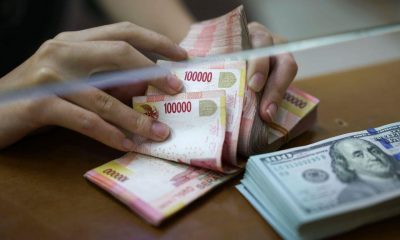Economy
Can You Make a Living Trading Forex?
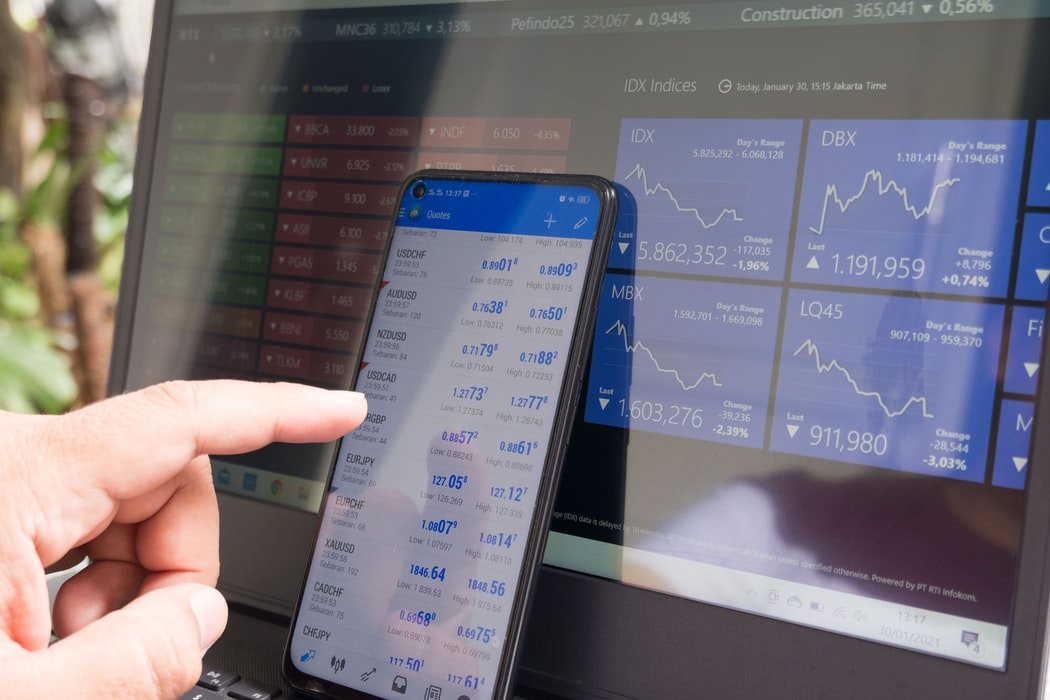
Forex trading has a certain appeal to people who would like to be their own boss and work at flexible hours.
In the past, the market was restricted to big companies; however, the internet made it possible for everyone to trade currencies.
Although some people might call it an easy way to make a living, it is a huge risk, especially if you are trading a lot of cash. If you are a risk-taker and want to participate, read on for some tips on how to start making a living trading forex.
Trading forex
Before jumping into the market, you need to understand the concept of forex trading. It takes place between two parties in an over-the-counter market that is controlled by different banks in the major trading centres.
You can trade any time of the day at any hour that you see fit because there is no central location restricting you. It is all about buying currencies and selling them when their value hits the roof.
Amount of Capital Needed
Some people worry about the capital needed to start trading because they think that they must have a considerable amount of cash.
However, it is easier than they think as you can trade forex with any capital because of the availability of micro-accounts. You just have to make sure that you can afford to lose that amount without risking your ability to pay the daily bills.
Furthermore, the more you risk, the higher your earnings will be. Consider starting as a part-time trader, then become a full-timer when you are confident that you can make a living from it.
The Importance of Brokers
Making it into the world of trading on your own may be a bit hard. That’s why brokers, or middlemen as they are called in the forex market, are needed. They are the third party that makes the transactions easier and helps you find good bids. The number of brokers in the market is growing, and that’s why researchers at Observer recommend checking testimonials and looking for the most reliable brokers.
This is especially because no rules are governing the market. You should also ask the broker about the way to withdraw your earnings and the ease of navigation of their website.
Another reason why hiring forex brokers is necessary is because they can offer you a fixed or variable spread according to your deal. The perks of a variable spread are the ability to adjust your bid depending on the volatility of the market. However, volatility is a double-edged weapon because you can lose money if the value of the currency drops.
Putting a Successful Strategy
Understanding yourself and your goals will help you put a successful strategy. Before you start trading forex, you have to include the possibility of losing and winning in order to keep your expectations in check. Many factors affect your strategies such as your capital, patience, and degree of dependency on the trading money.
You get to choose the type of forex market according to your plan and whether you would like short or long-term profits. For instance, the spot forex market takes place as soon as you choose the currency pair you want to exchange.
On the other hand, if you want to earn profit in the future, you can choose between forwarding or future forex markets. The difference between them is that the future one will bind you with a legal contract regardless of the price of the currency at that time.
Consider checking the available strategies to help you in making up your mind. Some of the methods are day trading, scalping, and arbitrary trading. It is better to be flexible when it comes to changing plans after realizing that the initial one isn’t paying off anymore.
Certain factors can affect your plans such as the ratio between the risk and win rates. Even though trading forex is flexible, you have to teach yourself discipline and commitment to make money.
Predicting the Market
Although it is hard to guarantee the full return of your money, amount of profit, or cash you may lose, you can learn how to predict the market’s volatility. Some surprise moves may take place raising the value of the currency or dropping it to the ground. This can help some traders become millionaires while leaving others bankrupt.
Periods of sudden volatility are not that common, so there is always room for prediction. The most important risk possibility that you need to take into consideration is slippage. You should also know when you have achieved an edge on the market. This will help your capital grow and lead to great profits.
Understanding the industry will help you minimize the risks and increase the probability of making huge sums of money. It is better to start as a part-timer and test the market before throwing away a job that provides you with a stable income. Trading forex can be quite profitable in the long-term, especially if you put a sound strategy and deal with a smart broker.
Economy
Nigerian Stocks Further Lose 0.38% as Cautious Trading Persists
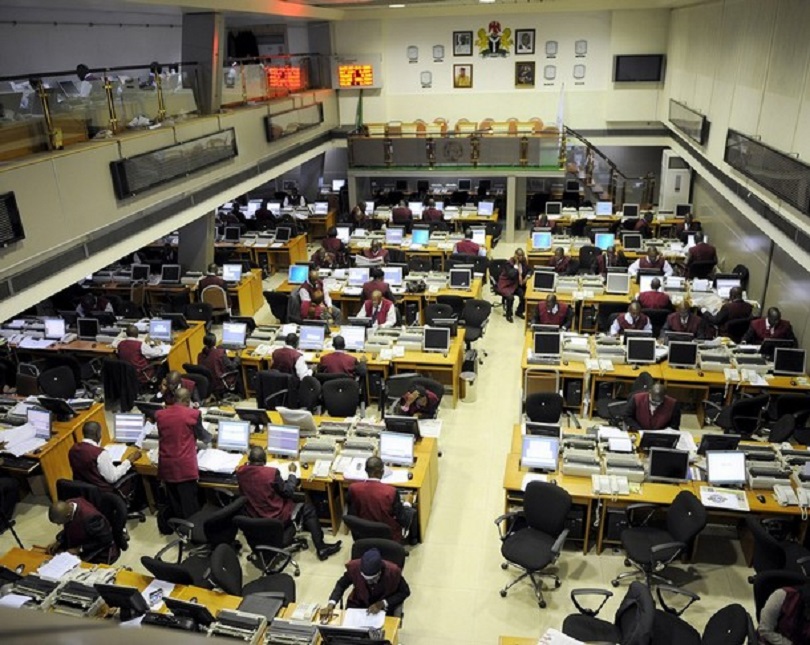
By Dipo Olowookere
The absence of a positive trigger left Nigerian stocks 0.38 per cent deeper in the bears’ territory on Friday, as investors embarked on cautious trading.
Two of the five major sectors tracked by Business Post finished in red on the last trading session of this week, with the industrial goods down by 2.44 per cent, and the energy down by 0.26 per cent due to profit-taking.
However, bargain-hunting raised the insurance sector by 1.52 per cent, the banking index increased by 0.79 per cent, and the consumer goods sector expanded by 0.28 per cent.
When the closing gong was struck yesterday, the All-Share Index (ASI) of the Nigerian Exchange (NGX) Limited crashed by 741.04 points to 192,826.77 points from 193,567.81 points, and the market capitalisation lost N476 billion to close at N123.763 trillion compared with the previous day’s N124.239 trillion.
According to data from Customs Street, Mecure gave up 9.97 per cent to trade at N75.85, Meyer depreciated by 9.90 per cent to N18.65, DAAR Communications crumbled by 9.83 per cent to N2.11, Champion Breweries staggered by 6.49 per cent to N18.00, and Dangote Cement crashed by 6.09 per cent to N779.00.
Conversely, Sovereign Trust Insurance gained 9.95 per cent to settle at N2.21, RT Briscoe improved by 9.93 per cent to N12.51, NGX Group expanded by 9.78 per cent to N124.00, Ellah Lakes surged by 9.70 per cent to N13.00, and Omatek chalked up 9.70 per cent to sell for N2.60.
A total of 44 shares finished on the gainers’ chart during the session, while 25 shares ended on the losers’ table, representing a positive market breadth index and strong investor sentiment.
The activity chart showed that 823.8 million stocks valued at N34.8 billion exchanged hands in 63,759 deals during the session versus the 868.5 million stocks worth N31.5 billion traded in 69,310 deals on Thursday.
This indicated that the value of transactions increased by 10.48 per cent, the volume of trades declined by 5.15 per cent, and the number of deals dipped by 8.01 per cent.
The busiest equity on Friday was Fortis Global Insurance, which sold 146.6 million units for N137.3 million, Zenith Bank transacted 79.4 million units valued at N7.1 billion, Japaul exchanged 57.2 million units worth N225.1 million, Jaiz Bank traded 49.5 million units valued at N589.3 million, and Access Holdings exchanged 44.8 million units worth N1.2 billion.
Economy
Nigeria’s Economy Expands 4.07% in Q4 2025

By Adedapo Adesanya
Nigeria’s economy, measured by gross domestic product (GDP), grew by 4.07 per cent (year-on-year) in real terms in the fourth quarter (Q4) of 2025.
The National Bureau of Statistics (NBS) announced the development in its latest GDP report for Q4 2025 on Friday.
The latest figure represents an improvement over the 3.76 per cent growth recorded in the corresponding period of 2024, signalling sustained recovery across key sectors of the economy. The growth rate was faster than the third quarter’s 3.98 per cent.
The report confirmed that Nigeria’s oil sector grew 6.79 per cent year-on-year and the non-oil part of the economy expanded by 3.99 per cent.
Nigeria’s average daily oil production stood at 1.58 million barrels per day in the final three months of 2025. That was lower than the third quarter’s output of 1.64 million barrels per day but higher than the 1.54 million barrels per day in the fourth quarter of 2024.
Breakdown of the data showed that the agriculture sector grew by 4.00 per cent in the fourth quarter of 2025. This marks a significant increase compared to the 2.54 per cent growth recorded in the same quarter of 2024, reflecting improved output and resilience in the sector.
The industry sector also recorded a stronger performance during the period under review. It grew by 3.88 per cent year-on-year, up from 2.49 per cent posted in the fourth quarter of 2024. The improvement suggests enhanced activity in manufacturing, construction, and related industrial sub-sectors.
The services sector maintained its position as a major growth driver, expanding by 4.15 per cent in Q4 2025. However, this was slightly lower than the 4.75 per cent growth recorded in the corresponding quarter of the previous year.
Overall, the 4.07 per cent GDP growth in the final quarter of 2025 underscores broad-based expansion across agriculture, industry, and services, despite a marginal moderation in services growth.
The Q4 performance provides further evidence of strengthening economic momentum, with improvements recorded in both agriculture and industry compared to the previous year.
Economy
Flour Mills Supports 2026 Paris International Agricultural Show

By Modupe Gbadeyanka
For the second time, Flour Mills of Nigeria Plc is sponsoring the Paris International Agricultural Show (PIAS) as part of its strategies to fortify its ties with France.
The 2026 PIAS kicked off on February 21 and will end on March 1, with about 607,503 visitors, nearly 4,000 animals, and over 1,000 exhibitors in attendance last year, and this year’s programme has already shown signs of being bigger and better.
The theme for this year’s event is Generations Solution. It is to foster knowledge transfer from younger generations and structure processes through which knowledge can be harnessed to drive technological advancement within the global agricultural sector.
In his address on the inaugural day of the Nigerian Pavilion on February 23, the Managing Director for FMN Agro and Director of Strategic Engagement/Stakeholder Relations, Mr Sadiq Usman, said, “At FMN, our mission is Feeding and Enriching Lives Every Day.
“This is a mandate we have fulfilled through decades of economic shifts, rooted in a culture of deep resilience and constant innovation. We support this pavilion because FMN recognises that the next frontier of global Agribusiness lies in high-level technical exchange.
“We thank the France-Nigeria Business Council (FNBC), the organisers of the PIAS, and our fellow members of the Nigerian Pavilion – Dangote, BUA, Zenith, Access, and our partners at Creativo El Matador and Soilless Farm Lab— we are exceedingly pleased to work to showcase the true face of Nigerian commerce.”
Speaking on the invaluable nature of the relationship between Nigeria and France, and the FMN’s commitment to process and product innovation, Mr John G. Coumantaros, stated, “The France – Nigeria relationship is a valuable partnership built on a shared value agenda that fosters remarkable Intercontinental trade growth.
“Also, as an organisation with over six decades of transformational footprint in Nigeria and progressively across the African Continent, FMN has been unwaveringly committed to product and process innovation.
“Therefore, our continuous partnership with France for the success of the Paris International Agricultural Show further buttresses the thriving relationship between both countries.”
PIAS is one of the most widely attended agricultural shows, with thousands of people from across the world in attendance.
-

 Feature/OPED6 years ago
Feature/OPED6 years agoDavos was Different this year
-
Travel/Tourism10 years ago
Lagos Seals Western Lodge Hotel In Ikorodu
-

 Showbiz3 years ago
Showbiz3 years agoEstranged Lover Releases Videos of Empress Njamah Bathing
-

 Banking8 years ago
Banking8 years agoSort Codes of GTBank Branches in Nigeria
-

 Economy3 years ago
Economy3 years agoSubsidy Removal: CNG at N130 Per Litre Cheaper Than Petrol—IPMAN
-

 Banking3 years ago
Banking3 years agoSort Codes of UBA Branches in Nigeria
-

 Banking3 years ago
Banking3 years agoFirst Bank Announces Planned Downtime
-

 Sports3 years ago
Sports3 years agoHighest Paid Nigerian Footballer – How Much Do Nigerian Footballers Earn




